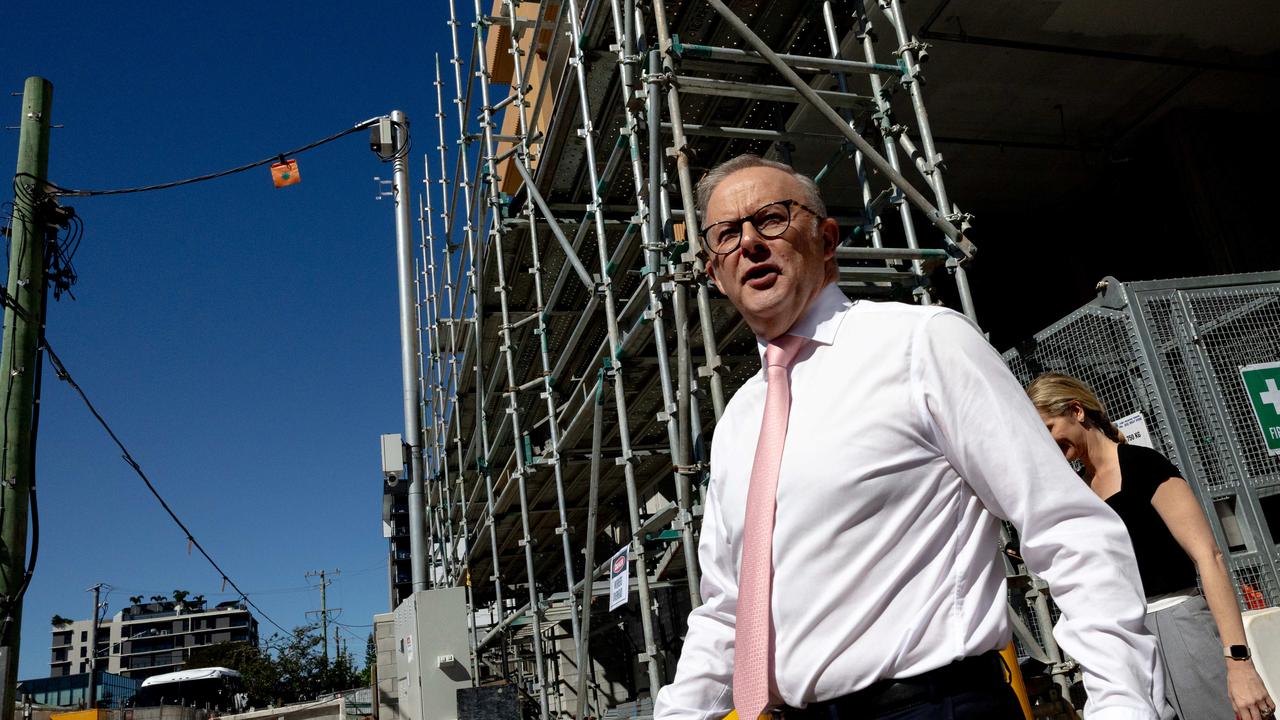Super savings to take weight off age pension
Australia will be spending less on aged pensions as a share of the economy in 40 years, as a doubling in our retirement savings pool more than compensates for an ageing population.

Australia will be spending less on the aged pension as a share of the economy in 40 years as a doubling of the retirement savings pool more than compensates for a rapidly ageing population that will see the number of over-65s double by 2063.
Thursday’s Intergenerational Report will reveal that the commonwealth’s age pension expenditure will drop from 2.3 per cent of GDP now to 2 per cent by 2062-63 and “contribute significantly to the sustainability of the budget”, even as other costs associated with an older society soar.
Alongside slowing growth and a narrowing tax base, the report will also forecast a tripling in the number of people aged over 65 over the coming four decades.
Jim Chalmers said the shrinking age pension burden, despite a ballooning number of retirees over coming decades, was “the intergenerational genius of super”.
“Super is delivering on its promise – providing a better retirement for more Australians and a better outcome for the budget over the next 40 years,” the Treasurer said. “Labor built the super system and we’ve always worked to protect it and make it stronger.”
Australians’ growing capacity to fund themselves in retirement has taken the pressure off politicians to make difficult future choices about paring back taxpayer support for retirees as budget pressures intensify.
By 2035, Australia is projected to have the lowest public spending on pensions as a share of GDP among the 38 OECD countries.
By the 2060s, we will be spending 80 per cent less on the age pension than the average OECD nation – again, as a proportion of the economy – and half the rate of the next nearest country. The compulsory employer superannuation guarantee contribution began in 1992, and has increased from 3-4 per cent of workers’ salaries to 11 per cent now.
Over that time, the pool of retirement savings has swelled to $3.5 trillion, making it the fourth-largest in the world. By the mid-2040s, most people will reach retirement after a working lifetime of dedicating 9 per cent or more of their pre-tax wages to super.
The IGR will project that total superannuation assets will grow from 116 per cent of total national output, or GDP, in 2022-23, to nearly 220 per cent four decades later. With people better able to support themselves, by 2063 the number of retirees receiving the age pension or other income support payments will be 15 per cent lower than today.
Treasury has estimated that the value of super tax concessions approached $50bn in 2022-23, and the latest IGR will forecast super tax concessions to jump from 1.9 per cent as a share of GDP to 2.4 per cent in 40 years.
Super tax breaks are projected to overtake the age pension expenditure in the 2040s. “The increase is driven primarily by earnings tax concessions rising from around 1.0 per cent of GDP in 2022-23 to 1.5 per cent of GDP in 2062-63,” the report will say.
The super guarantee rate will increase to 12 per cent by July 2025, and Labor has an aspiration to take it to 15 per cent, although Dr Chalmers has said it is not a current priority for the Albanese government. The Treasurer is seeking to direct some of the trillions of dollars in retirement savings to nation-building projects, to drive investment in areas such as affordable housing, infrastructure and clean energy.
Assistant Treasurer Stephen Jones said “the Intergenerational Report shows that our super system is improving the lives of Australians”.
“Our government wants to make it even stronger by boosting performance, improving access to retirement advice and the improving the service members receive from their super funds,” he said.




To join the conversation, please log in. Don't have an account? Register
Join the conversation, you are commenting as Logout